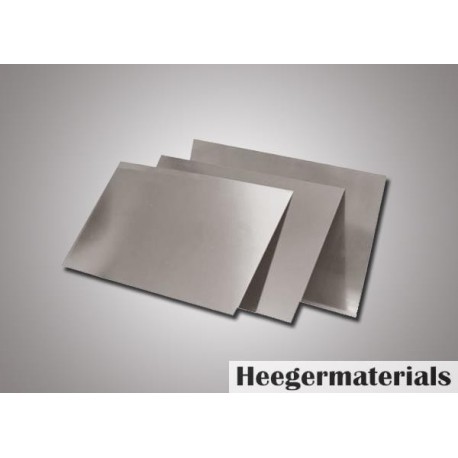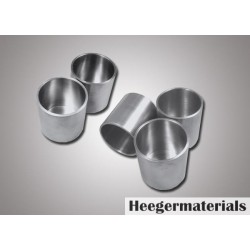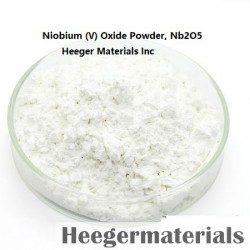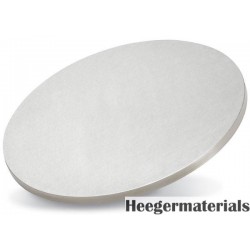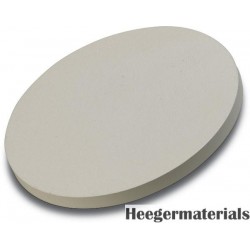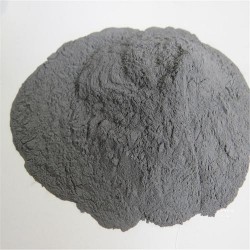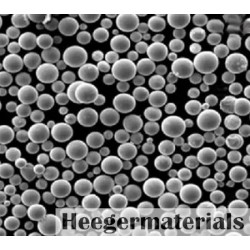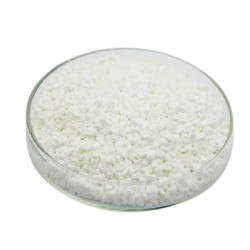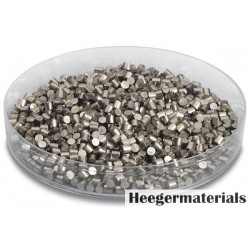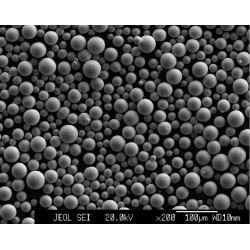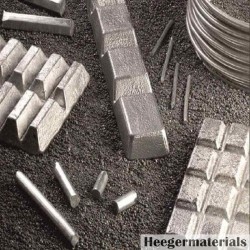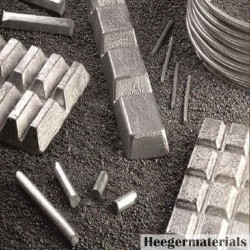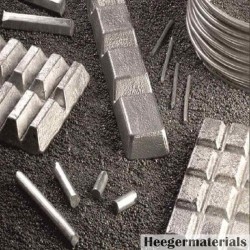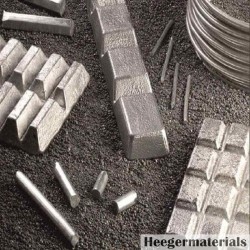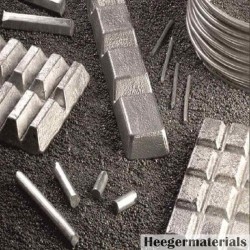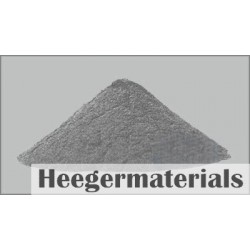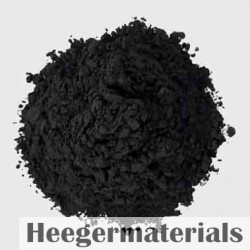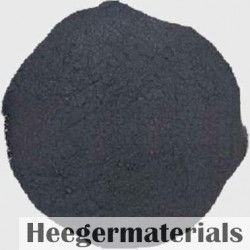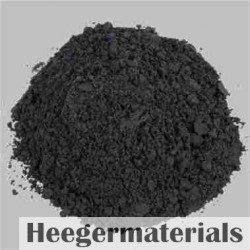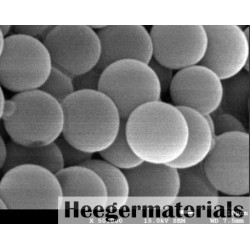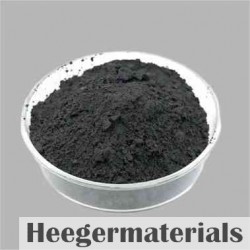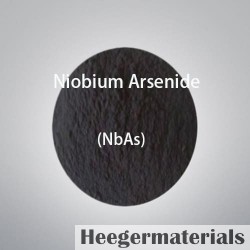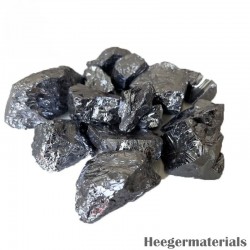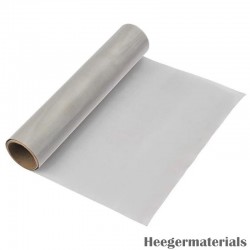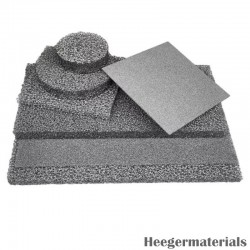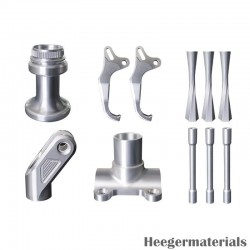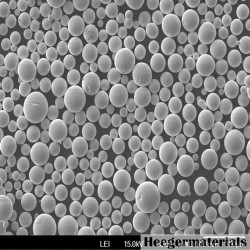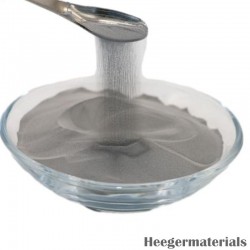Viewed products
-

Niobium Sheet |Niobium...
The niobium sheet is produced by...
Niobium
- Products
- Deposition Materials
- Refractory Metals
- Rare Earth Materials
- Powder
- Technical Ceramics
- Lanthanum Hexaboride (LaB6) Materials
- Pyrolytic Boron Nitride (PBN) Products
- Boron Nitride (BN) Products
- Alumina Ceramics (Al2O3)
- Aluminum Nitride (AlN) Products
- Silicon NItride (Si3N4) Ceramics
- Silicon Carbide (SiC) Ceramics
- Graphite Products
- Zirconia Ceramic
- MAX Phase Ceramic Materials
- Boron Carbide Ceramics (B4C)
- Magnesium Oxide Ceramics (MgO)
- Quartz Ceramics
- Macor Machinable Glass Ceramic
- Beryllium Oxide (BeO) Ceramics
- Piezoelectric Ceramics
- High Purity Materials
- Precious Metals
- Chemicals
- Crystals & Substrates
- Applications
- Other
Niobium Sheet |Niobium Metal and Alloys | Nb
HTNB1100
New product
The niobium sheet is produced by rolling high-purity niobium metal, which exhibits excellent ductility. Due to its shallow capture cross-section for thermal neutrons, niobium finds significant utility in the nuclear industry. Heeger Materials offers top-quality niobium sheets with the shortest lead time and competitive prices, providing customization options to meet specific needs.
Please contact us if you need customized services. We will contact you with the price and availability in 24 hours.
Data sheet
| Materials | Niobium and Niobium Alloy |
| Purity | 99.5%/99.9%/99.95% |
| Standard | ASTM B708 |
More info
Niobium Sheets can be easily deformed even at temperatures below room temperature. Whether for punching, cutting, deep drawing, or pressing, our niobium sheet can be machined effortlessly to meet your specific requirements. They have excellent properties such as high melting point, high strength, high electrical conductivity, high superconductivity, and high corrosion resistance.

Niobium Sheets Specifications
- Size: 0.001”- 0.1875” * thick x W x L
- Standard: ASTM B393
- Surface: Polished, Vannum annealed, Cold-rolled bright
- Niobium and Niobium alloys including Niobium (Type 1), Niobium (Type 2), Nb1Zr Alloy (Type 3 & 4), C103 Alloy, 45Nb Alloy (Nb-55Ti), NbRRR (≥99.95%), Nb-7.5Ta, Nb-47Ti, Nb-50Ti, Nb-53Ti
*If the thickness is>0.1875”, please check the Niobium plate. *If the width is <6”, please check the Niobium strip/foil.
Niobium Metal and Niobium Alloy UNS Grade
- UNS R04200 Reactor grade unalloyed niobium
- UNS R04210 Commercial grade unalloyed niobium
- UNS R04251 Reactor grade Niobium-1% zirconium
- UNS R04261 Commercial grade Niobium-1% zirconium
Niobium Sheet Ordering Information
Orders for material under this specification shall include the following information.
- Quantity (weight, number of pieces, or other suitable measures of quantity)
- UNS grade (See above Niobium and Niobium Alloy UNS Grade)
- Dimensions (Thickness, width, and length)
- Additions to the specification and supplementary requirements, if any.
Niobium Sheet Applications
- Jewelry
- Super-abrasives
- Thin film deposition
- High-energy physics, springs, and superconducting magnets for aerospace
- Client electronics
- Medical
- Superconducting applications
Niobium Metal and Niobium Alloy Sheet Packing
Niobium and Niobium alloy sheets will be carefully placed in wooden cases or cartons with additional support from soft materials to prevent any shifting during transportation. This packaging method guarantees the integrity of the products throughout the delivery process.
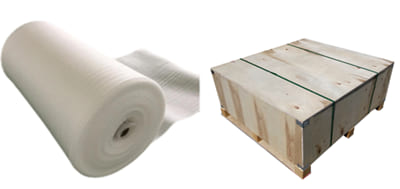
About Niobium Element
Niobium, also known as columbium (with the symbol Cb), is a transition metal that was first identified by English chemist Charles Hatchett in 1801. Initially named after the Greek mythological figure Tantalus, due to its close relationship with tantalum, niobium is often found in minerals like columbite, where it occurs alongside tantalum. The element was later recognized for its unique properties, particularly its ability to form stable oxide layers, which make it highly resistant to corrosion.
In terms of industrial applications, niobium metal plays a critical role in the production of high-strength low-alloy steels and stainless steels, where it is used to improve strength, ductility, and resistance to high temperatures. The element’s resistance to oxidation and high-temperature stability also makes it valuable in aerospace and nuclear applications. German chemist Heinrich Rose contributed to the understanding of niobium's properties, separating it from tantalum and confirming its distinct identity. Today, niobium is indispensable in advanced materials, thanks to its combination of strength, heat resistance, and corrosion resistance.
Inquiry to Heeger Materials
Items marked with an asterisk (*) are required.
Heeger Materials respects your privacy, and we will NOT sell or provide your personal data to other third parties, or allow them to use your personal data for their own purposes. However, we would like to send you information from time to time by mail or email about our products and special offers in addition to the interest categories you've selected above. Read our Privacy Policy


